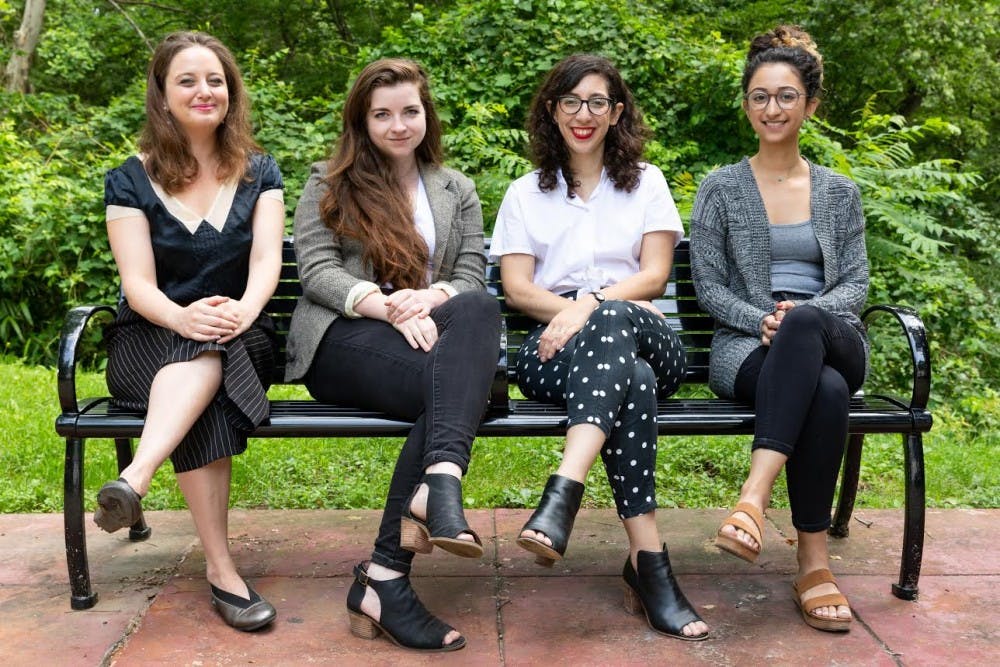Washington offers many activities and outings, whether it’s ogling at colorful houses by Logan Circle, munching on a cupcake along the Georgetown waterfront or marveling at the monuments in their shadowy glow at night. That’s why local news sites like DCist exist.
“We serve as a knowledgeable friend that tells you what’s going on in the city,” said Rachel Sadon, the editor-in-chief of DCist.
From having a weekly Weekend Picks to the “Overheard in D.C.” forum to a daily newsletter, DCist covers the capital’s news, curiosities, and culture.
“It was one of the first publications I subscribed to when I moved to D.C.,” Alejandro Roark, a master’s student in the School of Public Affairs, said. “And thanks to their coverage, I have enjoyed many adventures around D.C. and beyond.”
But it was only recently that DCist returned to creating daily D.C.-oriented content. In November 2017, billionaire Joe Ricketts shut down the network of local news organizations he owned after employees from two of the publications – Gothamist and DNAinfo – attempted to unionize. Gothamist’s network of other neighborhood news sites, including DCist, were also abruptly taken offline.
In February of this year, WAMU, the public radio station owned by American University, joined with public radio stations in Los Angeles and New York City to acquire DNAinfo. The stations also took over their respective neighborhood news sites: DCist, LAist and Gothamist.
This May, WAMU launched a Kickstarter campaign in order to financially support DCist, which their website says they were able to buy due to the support of “two donors.” The month-long campaign raised nearly $87,000 from about 1,500 donors, and the staple of D.C. local news officially returned on June 11.
“I’m really happy that it’s coming back,” Emma Kapoor, a third-year student in the School of International Service, said. “I really liked it before it left – especially for its Overheard in DC section, which was always really funny.”
After joining a small team at WAMU to revive DCist, Rachel Sadon returned as editor-in-chief, along with DCist associate editor Rachel Kurzius. Staff writer Natalie Delgadillo and Lori McCue later filled out the DCist staff.
“WAMU didn’t bring back DCist to radically change it,” Sadon said. “They really believe in the vision we had before.”
She said most of DCist will stay the same, and the changes they’re making now are only to “tweak it and make it better.”
DCist’s relationship with WAMU opens up new possibilities for collaboration, including DCist dipping its toes into the realm of radio, Sadon said. Other improvements for “enhancing the work we’ve already done,” Sadon said, include light rebranding and working with a membership team. The website is also hiring an AU student through the University’s federal work-study program.
Since its conception in 2004, DCist has been funded by advertising, but its second life has prompted considerations about membership and donations.
“We don’t plan to put any content behind a paywall,” Sadon said. “Public media has long been supported by its members and we look to translate that digitally.”
Another key change for DCist 2.0—as the WAMU and DCist staff refer to it— was dropping coverage of Congress and the federal government.
“We cover the District rather than federal Washington,” Sadon said, explaining that they will only cover federal government when it affects life in D.C. “We believe there’s so much to tell about the District where people live.”
Sadon said she encourages college students in the city to go out into the community and talk to people who’ve lived there for a long time.
“DCist is our voice in D.C. That is what makes it so awesome,” Roark said.





